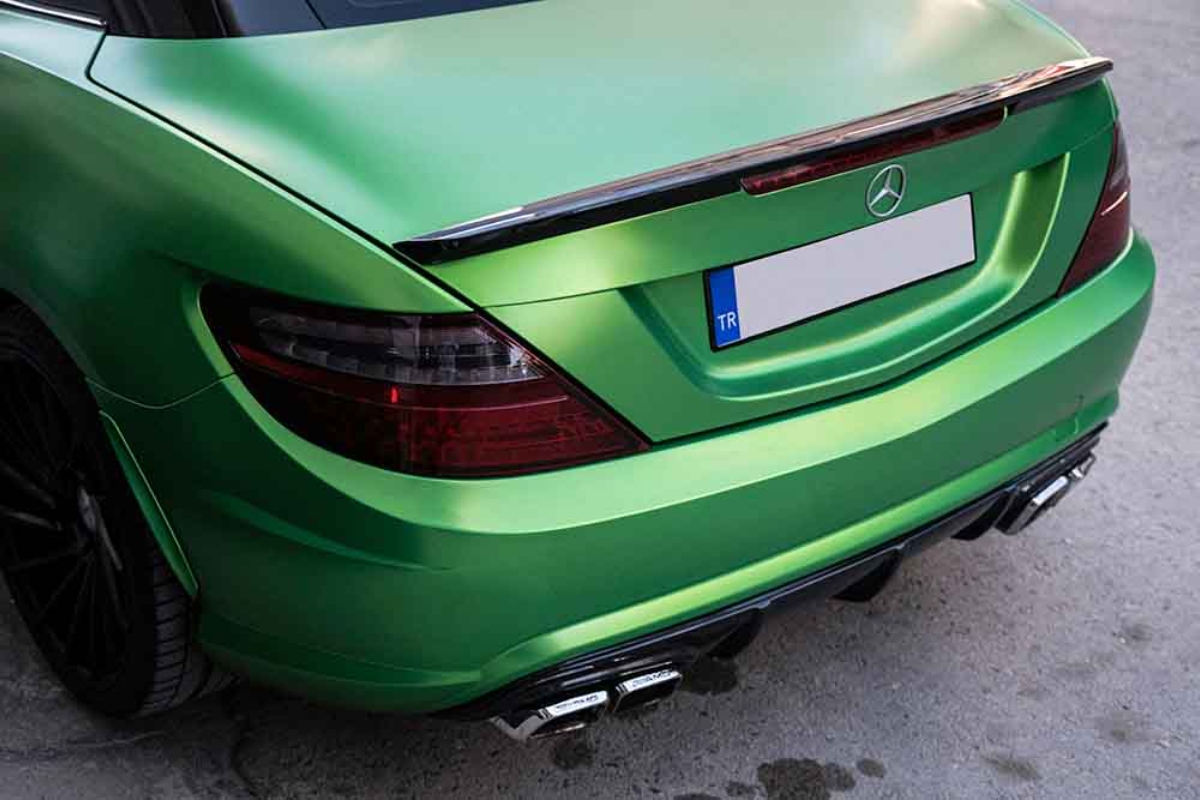When it comes to transforming your car’s appearance, the choice often comes down to two materials: TPU (Thermoplastic Polyurethane) and Vinyl (PVC).
Both can make your car look stunning, but they perform very differently over time. Whether you’re a car enthusiast, professional installer, or business owner, understanding the key differences can save you time, money, and frustration.
Flexibility and Ease of Installation
Vinyl wraps have been around for decades, and they’re relatively easy to install on flat surfaces. But when it comes to deep curves, edges, and complex panels, vinyl often struggles. It can tear or wrinkle when overstretched.
TPU wraps, on the other hand, are made for flexibility. Their molecular structure allows greater elasticity without losing shape. This means:
- Fewer seams and cuts
- Better coverage around corners and recesses
- Less risk of tearing or air bubbles
For installers, that translates to faster work and fewer redos.
Durability and Weather Resistance
Vinyl is affordable but not invincible. Under harsh sunlight or cold temperatures, it may crack, fade, or peel after a few years. TPU, however, was engineered for durability. It can withstand:
- UV exposure
- Acid rain
- Salt, snow, and heat
- Minor impacts and scratches
A quality TPU wrap can easily last 5–7 years with proper care—often double the lifespan of standard vinyl.
Scratch Resistance and Self-Healing
This is where TPU truly stands out.
TPU wraps are often self-healing—light scratches or swirl marks disappear when exposed to mild heat or sunlight. Vinyl wraps don’t have this capability, meaning any scratch remains visible until rewrapped.
So for daily drivers or cars that spend a lot of time outdoors, TPU is the smarter, longer-lasting choice.
UV and Color Stability
Color fading is a common complaint among vinyl users. Over time, exposure to sunlight causes pigments to break down, leading to uneven tones or yellowing—especially with white or light colors.
TPU films feature advanced UV-blocking layers, protecting both the wrap and the paint underneath. The result?
Vibrant color that looks showroom-new for years.
Environmental Safety
Vinyl (PVC) is made with plasticizers and can release volatile organic compounds (VOCs) over time. TPU is PVC-free, more stable, and environmentally friendly. It’s the preferred option for brands and users moving toward sustainable solutions.
Cost Comparison
TPU films usually cost more upfront than vinyl, but they last longer and protect better—so your long-term cost per year is lower.
For commercial installers, that also means fewer warranty claims and happier customers.
| Category | Vinyl (PVC) | TPU |
| Average Lifespan | 2–3 years | 5–7 years |
| Scratch Resistance | Low | High (Self-healing) |
| UV Resistance | Moderate | Excellent |
| Price | Lower upfront | Higher upfront, better ROI |
| Finish Quality | Good | Premium, more “paint-like” |
| Environmental Impact | PVC-based | PVC-free |
Final Verdict
If you want a budget-friendly, short-term wrap, vinyl still works.
But if you’re after premium quality, long-term protection, and a luxurious finish, TPU is absolutely worth it.
At tpucarwraps.com, we specialize in high-grade TPU color wraps designed for performance, beauty, and durability. Explore our collection today and see why more installers are switching to TPU.


